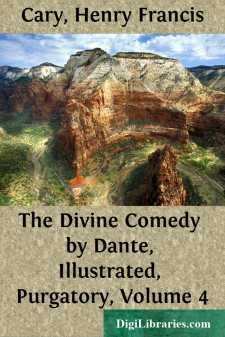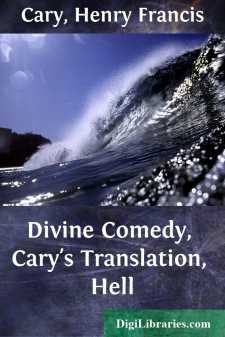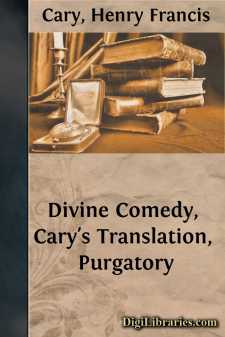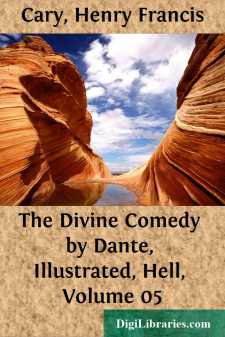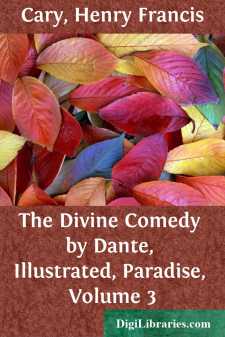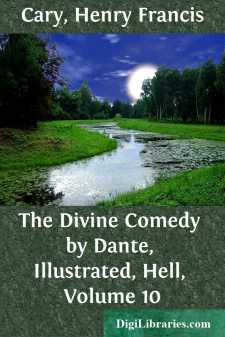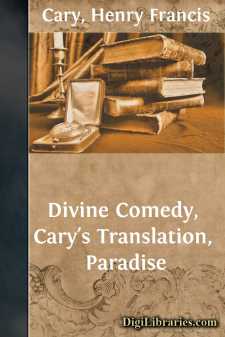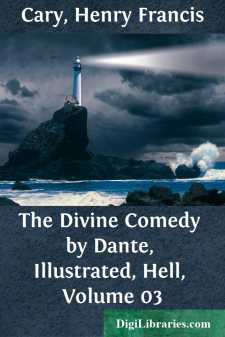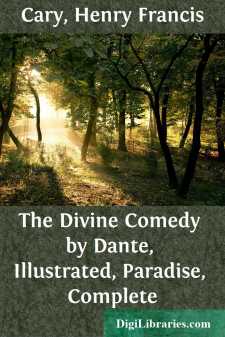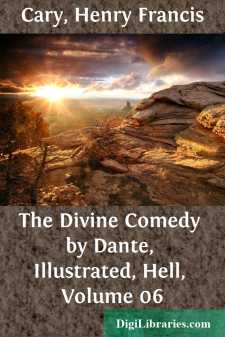Categories
- Antiques & Collectibles 13
- Architecture 36
- Art 48
- Bibles 22
- Biography & Autobiography 813
- Body, Mind & Spirit 142
- Business & Economics 28
- Children's Books 17
- Children's Fiction 14
- Computers 4
- Cooking 94
- Crafts & Hobbies 4
- Drama 346
- Education 46
- Family & Relationships 57
- Fiction 11829
- Games 19
- Gardening 17
- Health & Fitness 34
- History 1377
- House & Home 1
- Humor 147
- Juvenile Fiction 1873
- Juvenile Nonfiction 202
- Language Arts & Disciplines 88
- Law 16
- Literary Collections 686
- Literary Criticism 179
- Mathematics 13
- Medical 41
- Music 40
- Nature 179
- Non-Classifiable 1768
- Performing Arts 7
- Periodicals 1453
- Philosophy 64
- Photography 2
- Poetry 896
- Political Science 203
- Psychology 42
- Reference 154
- Religion 513
- Science 126
- Self-Help 84
- Social Science 81
- Sports & Recreation 34
- Study Aids 3
- Technology & Engineering 59
- Transportation 23
- Travel 463
- True Crime 29
Henry Francis Cary
Henry Francis Cary was an English author and translator best known for his influential translation of Dante's "Divine Comedy," published in 1814. His translation, notable for its use of blank verse, made Dante's work accessible to English-speaking audiences and received widespread acclaim, particularly after a favorable review by Samuel Taylor Coleridge. Cary's contributions to literature also include his roles as a literary critic and a clergyman, reflecting his deep engagement with both literary and religious spheres.
Author's Books:
Sort by:
CANTO XIX It was the hour, when of diurnal heatNo reliques chafe the cold beams of the moon,O'erpower'd by earth, or planetary swayOf Saturn; and the geomancer seesHis Greater Fortune up the east ascend,Where gray dawn checkers first the shadowy cone;When 'fore me in my dream a woman's shapeThere came, with lips that stammer'd, eyes aslant,Distorted feet, hands maim'd, and...
more...
CANTO I IN the midway of this our mortal life,I found me in a gloomy wood, astrayGone from the path direct: and e'en to tellIt were no easy task, how savage wildThat forest, how robust and rough its growth,Which to remember only, my dismayRenews, in bitterness not far from death.Yet to discourse of what there good befell,All else will I relate discover'd there.How first I enter'd it I...
more...
PURGATORY Cantos 1 - 33 O'er better waves to speed her rapid courseThe light bark of my genius lifts the sail,Well pleas'd to leave so cruel sea behind;And of that second region will I sing,In which the human spirit from sinful blotIs purg'd, and for ascent to Heaven prepares. Here, O ye hallow'd Nine! for in your trainI follow, here the deadened strain revive;Nor let Calliope...
more...
CANTO IX THE hue, which coward dread on my pale cheeksImprinted, when I saw my guide turn back,Chas'd that from his which newly they had worn,And inwardly restrain'd it. He, as oneWho listens, stood attentive: for his eyeNot far could lead him through the sable air,And the thick-gath'ring cloud. "It yet behoovesWe win this fight"—thus he began—"if not—Such aid to us...
more...
CANTO XXII Astounded, to the guardian of my stepsI turn'd me, like the chill, who always runsThither for succour, where he trusteth most,And she was like the mother, who her sonBeholding pale and breathless, with her voiceSoothes him, and he is cheer'd; for thus she spake,Soothing me: "Know'st not thou, thou art in heav'n?And know'st not thou, whatever is in heav'n,Is...
more...
CANTO XXXII COULD I command rough rhimes and hoarse, to suitThat hole of sorrow, o'er which ev'ry rockHis firm abutment rears, then might the veinOf fancy rise full springing: but not mineSuch measures, and with falt'ring awe I touchThe mighty theme; for to describe the depthOf all the universe, is no emprizeTo jest with, and demands a tongue not us'dTo infant babbling. But let...
more...
PARADISE Canto 1 - 33 CANTO I His glory, by whose might all things are mov'd,Pierces the universe, and in one partSheds more resplendence, elsewhere less. In heav'n,That largeliest of his light partakes, was I,Witness of things, which to relate againSurpasseth power of him who comes from thence;For that, so near approaching its desireOur intellect is to such depth absorb'd,That memory...
more...
CANTO V FROM the first circle I descended thusDown to the second, which, a lesser spaceEmbracing, so much more of grief containsProvoking bitter moans. There, Minos standsGrinning with ghastly feature: he, of allWho enter, strict examining the crimes, Gives sentence, and dismisses them beneath,According as he foldeth him around:For when before him comes th' ill fated soul,It all confesses; and...
more...
CANTO I His glory, by whose might all things are mov'd,Pierces the universe, and in one partSheds more resplendence, elsewhere less. In heav'n,That largeliest of his light partakes, was I,Witness of things, which to relate againSurpasseth power of him who comes from thence;For that, so near approaching its desireOur intellect is to such depth absorb'd,That memory cannot follow....
more...
CANTO XIII ERE Nessus yet had reach'd the other bank,We enter'd on a forest, where no trackOf steps had worn a way. Not verdant thereThe foliage, but of dusky hue; not lightThe boughs and tapering, but with knares deform'dAnd matted thick: fruits there were none, but thornsInstead, with venom fill'd. Less sharp than these,Less intricate the brakes, wherein abideThose animals, that...
more...


